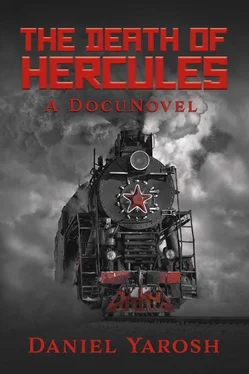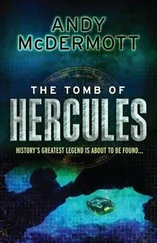“I know who,” was all Zalmund said. He glanced to the false panel on the back of the front door. His Cheka passes were untouched.
By late October 1918 the German defeat appeared inevitable. The Ukrainian Republic had no defense against a uniting Poland to the north and hardened Polish army troops swept into the Kyiv capital in early November. Like cockroaches in sudden light, the Kyiv underground scattered. Dragomirov was rumored to have gone over to the Bolsheviks or escaped to Archangel. Around Kyiv, Ukrainians unleashed major pogroms against Jews in their shtetls , murdering thousands. Homes were looted and burned, men massacred, mothers ravaged, and children gutted, all with impunity. Later they would say it was the Germans and the Poles. But in fact, it was the local ironworker and the neighbor tradesman peeled to the core by fear of war and uncertain of victory. The Jews of the Ukraine were the victims of neither armaments nor pestilence, but the release of demons into the chaos.
The fury of the Ukrainians could not save themselves. They decimated the Jews, who were not their real enemy. The Polish army commandeered the Town hall, barracked in the stadium, and arrested what members of the Rada government they could find. Many were summarily shot. Kyiv was the capital of the Ukraine for one thousand years, but in the three years following 1918 European powers exchanged its ownership sixteen times.
Max, Deena and Zalmund took rooms near the Köln train station on the night of Thursday, November 28, 1918. Max bought pickled herring on a black bread roll from a street vendor and went back to his room to sleep. Deena and Zalmund strolled the old town, gazing at the glorious Cathedral brightly lit against the dark sky, and took a light meal at a café before returning to their room.
The next morning, they met in front of the boarding house, walked to the station and boarded the train to Leipzig, 500 kilometers to the east.
Deena didn’t know at first what it was she saw in Max on the train that made her look at him out of the corner of her eye, even before Zalmund brought him over to talk. It certainly wasn’t the grey wool coat, worn at the collar and frayed at the sleeve, which hung loosely on his thin frame. He lacked an aura of confidence, and he seemed in some way to be concealing something. Maybe it was his piercing blue eyes, with an edge of determination, contrasting with the endearing tasseled red forelocks protruding from under his black peasant cap. She could tell that he was lost, didn’t know it, and maybe she could help him find his way back.
Of course, she noticed his attention, the way he unselfconsciously stared at her, even after he returned to his seat. Each time she shifter her weight, or rose from the seat, he was startled. Each time she looked at him she smiled, and her smile grew progressively broader, finishing with a nod of her head. Zalmund hadn’t noticed, she thought.
After a stroll, ‘to stretch my legs’ she told herself, Deena boldly sat down next to Max as he stared out the window. He turned with a start, lifting his left arm and almost smacking himself in the face. Deena giggled and as he focused on her face, he smiled sheepishly.
“You sleep well last night?” she asked.
“Off and on,” he answered. “Will we arrive before dark?”
He almost caught her admitting she was watching him. “Well, I don’t know,” she looked into his eyes and raised her eyebrows. “It’s gets dark so early now.”
“I’ve lost track.”
“We have some time.”
There was a long pause while they each looked ahead. She felt fastened to the seat and could not leave. He turned to look at her. He didn’t say anything, just stared at her while he formed a sentence, then discarded it and started again. She smiled, turned to him, and they both began to speak at the same time.
“You first,” she said.
“No, you, madam.”
“Do you miss your home?” she asked.
“Yes, I do. But I can’t go back until I do this. So, there is no point in thinking of it.”
“I’m sorry,” she said, and she lowered her eyes.
“No, I didn’t mean it like that,” he stammered. “It’s just that I must find my Mama and Pa, and that’s all I think about; how to find them and how to get them home. Nothing else matters to me now.”
“It’s good to have a purpose,” she said, and raised her eyes to meet his. He smiled and a frieze jolted her spine.
“Do you want to know about my hometown?” he asked.
“I think that is what I really meant,” she said.
“I thought so.” And so, he described to her Minneapolis, with the alphabet ordered streets, the porches for the spring, the shovels for the deep snow in winter, and the neighbors who all knew, and gossiped about, each other. He described the street cars running down Hennepin Avenue, the three-story Dayton’s department store downtown, right next to the gilded Canton Cafe Chinese restaurant. He left out that his Jewish neighborhood was culturally isolated from rest of the Scandinavian city, and tensions regularly broke out into fistfights among the young men. Deena imagined a bustling town, full of rich people in cars with no cares, free from worry about the government or fear of the Church, able to say and do anything. The story he told came close to the fantasies told by her townspeople about life in America. Was it really true? Could she ever live there? She looked closely at Max, in a different way. His poor appearance was really a cover for his mission. His bright eyes and lean frame revealed his inner energy and determination. He was part of the New World that would overtake her exhausted country. She yearned to leap to that world, but she did not know how.
“I must sound silly, talking to you about my hometown that is so new, when you come from such old cities,” he stammered, and stopped.
“Not all the cities,” she smiled. “Just one.” He laughed, for the first time, and she giggled that she had made him laugh. They laughed again and nodded at each other.
“So, tell me about one,” he said.
She told him about Koszuty, the old mansion and its history with the patriot Kosiński. She described the stone and plaster homes, the rows of wooden shops, and the dirt streets with deep carriage ruts and horses. She also mentioned the neighbors and their gossip. She left out that Zalmund’s father was a rent and tax collector, and the pogroms by the Black Hundred. Max nodded at each story, and he imagined the idyllic country life that his parents traded in for a coal yard in Kherson. And now they were missing.
**********
“Nikolayev!” harrumphed Zalmund, when Deena returned to her seat and told him of Max’s plan. “Why Nikolayev? Where in God’s majesty is Nikolayev?”
“It’s the biggest city near Kherson, his town” Deena said.
“Near Odessa?”
“I suppose.”
“Why?”
“His parents were last heard from there. That is where the last letter was sent,” Deena told him.
“How long ago?”
“A long time. I didn’t ask.”
“They may be gone.”
“Maybe,” she said.
“He is going?’ Zalmund asked.
“Without a doubt.” There was a note of pride in Deena’s voice. She was taking Max’s side. Was there a side? When did there get to be a side?
Zalmund caught the tone in her voice. “It’s foolish.”
“I suppose,” she said admiringly, clearly not discouraged.
After a pause of consideration, Zalmund asked “Did you tell him that?
A pause. “No.”
“What?”
“No!” Deena said firmly.
Zalmund struggled to control himself. Why? Who was this American to him? “It’s a dangerous place now. At the edge of the Red Army, with the counter-revolutionaries scattered about and the Americans in Odessa. There’s fighting all over.”
Читать дальше












